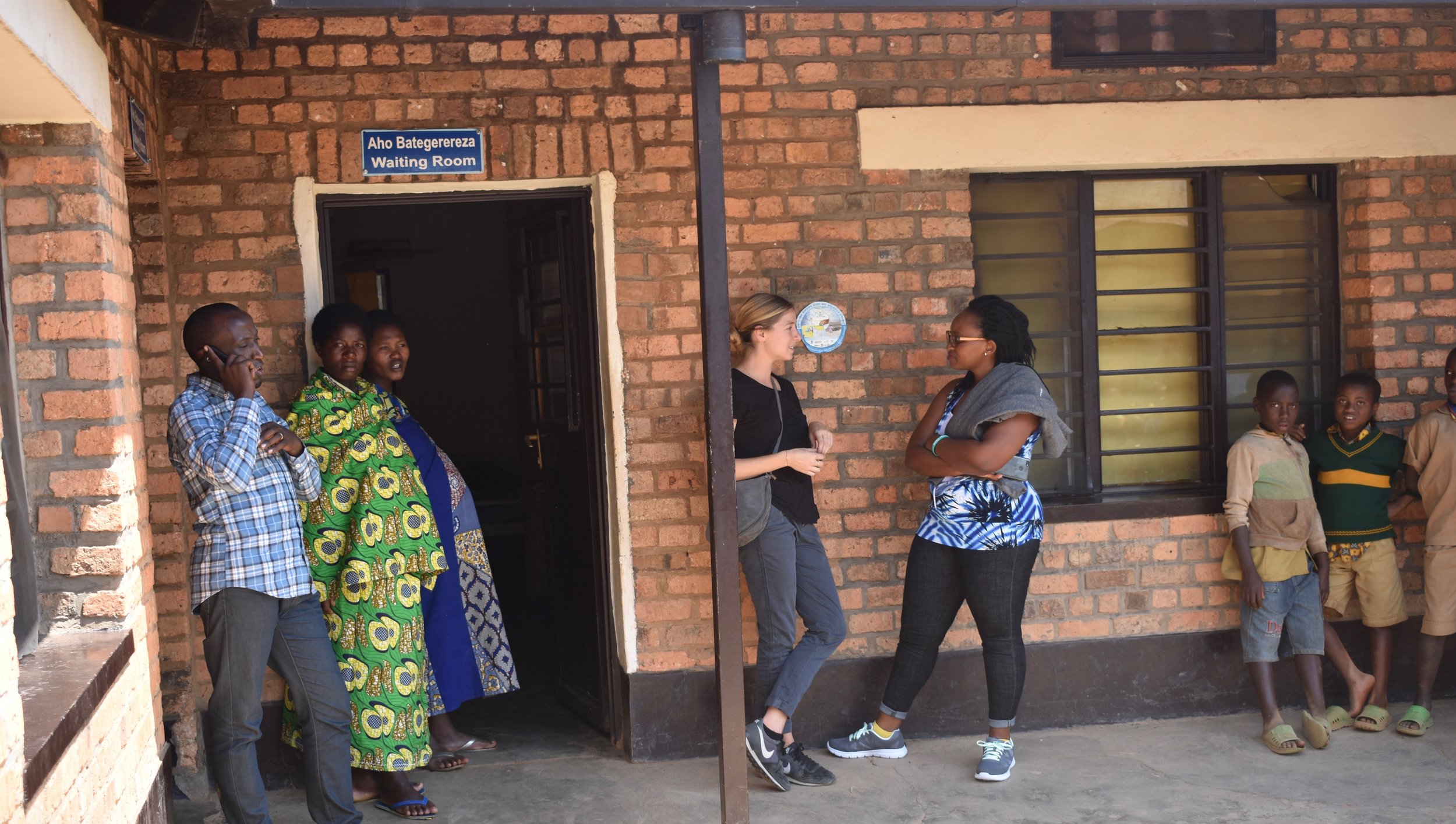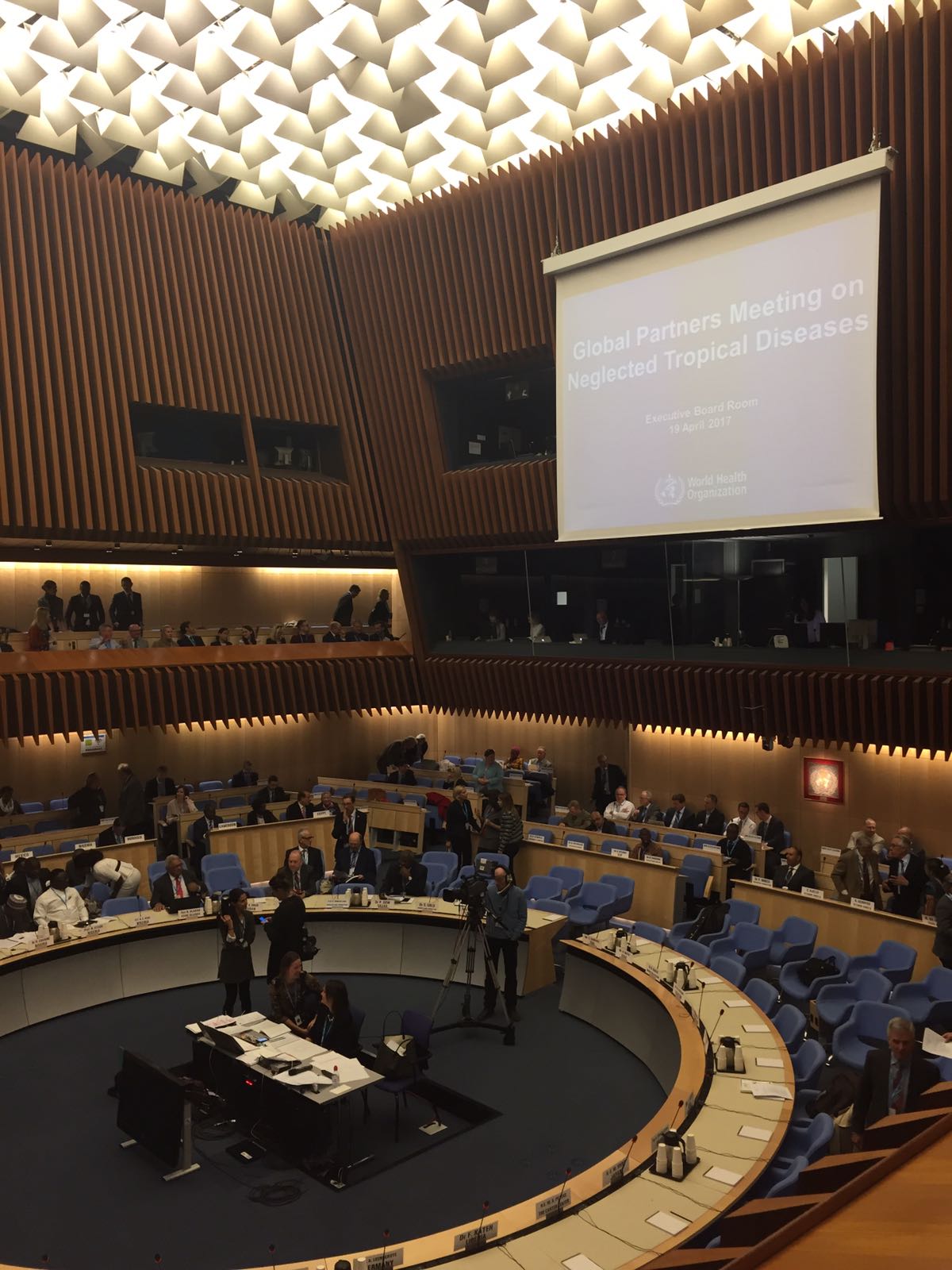Juliette Delman-Lagot
Juliette Delman-Lagot
Health Communications Specialist at Alliance for Healthy Communities
Juliette lives in Kigali, Rwanda and is originally from both Brooklyn, New York & Washington, DC, USA
Website: ahcglobal.org
Twitter: @AHCglobal / @juliette_dl
Instagram: @AHCglobal / @juliettedl
How did you get started in PR/Communications and how did you find yourself where you are now?
My passion for journalism and global health unintentionally led me into the world of communications.
My interest in journalism started after my family moved from Brooklyn to Washington D.C. when I was in middle school. I found myself surrounded by savvy, engaged and politically connected writers and thinkers. By the end of high school, I had watched movies like All the President's Men too many times to count. I was in awe of how journalism could powerfully expose the truth and change global discourse through storytelling.
During the same period, I spent my summers traveling on research and service learning trips to Ethiopia, Kenya, Ghana and Rwanda, where I was exposed to the plight of those living without access to basic health and education services. I came to understand that the tools needed to address these inequities largely existed, but progress was stalled by issues of access, funding, political will and awareness. By the end of high school, I knew I wanted to help break down those barriers but didn’t know what my value-add would be.
These world’s collided throughout my time studying international relations at New York University, but they truly came together during my first job out of college at Global Health Strategies (GHS) in New York. GHS uses communications as an advocacy tool to move the needle on health issues I care deeply about. My years at GHS taught me that one of the most effective ways to instigate change is to generate public support for critical issues through storytelling to the right audiences at the right time.
I’m currently living in Kigali, Rwanda, where I'm using the skills I learned over the past few years to build a communications department from the ground up at a recently launched NGO called Alliance for Healthy Communities.
What is your role within the company?
Alliance for Healthy Communities (AHC) works to fill critical gaps in health services created by the sub-Saharan African health workforce shortage, primarily in HIV and family planning, while also addressing the root-causes of the deficit through capacity building, evaluation and collaborative partnerships.
Though AHC made strides in their first operational year, their work and impact wasn’t recorded as they didn’t have the budget for a communications lead, website or any other communications activities. This was a sobering reminder that without communications, life-saving work can go completely unnoticed.
As the first Health Communications Specialist for AHC, I’m working with everyone here to tell their unique story to the wider public, raise their voice to new donors and share lessons learned with the global development community.
What are you currently working on?
Everything! We’re currently finalizing a broad strategy to guide everything we’ll work on this year – from celebrating our one-year anniversary, to amplifying challenges and solutions to the HIV epidemic around World AIDs Day, to telling patient stories, to sharing lessons learned with valued partners in the region through an online resource hub.
In addition to big-picture planning, we’re working to get AHC on the map A.S.A.P. through our new website and social media platforms.
What is a recent success you're particularly proud of?
I’m proud of how the entire team at AHC collaborated to shape our narrative from scratch. As a new organization, your story can go in a million directions. Our challenge was that we needed a narrative broad and dynamic enough to capture our current programs in HIV and family planning, as well as our desired future work in other issue areas…all while still being specific, human-centric and engaging.
What is most important in your work?
The people I surround myself with. Whether that’s our program team who provide key insights about our work, or a dedicated mentor I can lean on for strategic advice.
How would you say the media landscape in your field has changed since you started working?
The Trump administration and Brexit have brought on a new era of global uncertainty and fear to many sectors, including the international development community. More than ever in communications and advocacy, we have a responsibility to sound the alarm when critical policies are in jeopardy – such as the reinstatement of the “Global Gag Rule” otherwise known as the Mexico City Policy *– and make the case for continued investment in life-saving programs around the world.
These macro changes are also reflected in smaller ways. There’s been an overall shift in international development messaging to appeal to more conservative politics. In line with the “Make America Great Again” and “Take back control; Britain First” messaging, aid communications is now trying to underscore how overseas aid programs benefit homeland security, in turn, putting [insert nation] first.
Where are your favorite places for business meetings or drinks?
Back in New York…I loved meetings at the café bakery inside Lafayette restaurant on the corner of Great Jones and Lafayette Street. Lafayette is a high-end French brasserie-inspired restaurant situated in downtown Manhattan’s iconic Schermerhorn Building. The café is a hidden nook, great for casual coffees in a beautiful setting. As soon as it gets dark, the tea lights come out and it turns into a great spot for after work drinks.
For an even more casual spot for work drinks in Brooklyn, I’d recommend Sisters restaurant in Clinton Hill.
I’m still finding the best spots in Kigali, but I’ve been frequenting Inzora Café. They have great coffee and nice rooftop seating. The adjacent bookstore is definitely a plus!
PR/Communications can be fast-paced and stressful, what is your favorite way of relaxing?
Yoga, reading, fiction writing and attempted meditation. I’ve become a big fan of the app “Head Space.” They walk you through 10- to 15-minute guided meditations that are a great way to wind down after a busy day.
What are you reading these days?
Jesmyn Ward. Her second book, Salvage the Bones, has become one of my all-time favorites. It’s about a working-class African-American family in Mississippi during the ten days leading up to Hurricane Katrina. Now, I’m on her latest book, Sing, Unburied, Sing, written from the perspective of several family members in the fictional town of Bois Sauvage, Mississippi. Her writing echoes Maya Angelou’s poetry…a beautiful escape from my everyday communications-type writing.
What are you listening to these days?
Seabird by the Alessi Brothers, even though I’m about 40 years late to the game.
What is the next event you're the most looking forward to in the next months?
The International Conference on Family Planning taking place here in Kigali this November. Hosted every other year for the past 8 years, the conference serves as a melting pot of policymakers, researchers, advocates, youth and international leaders from the global family planning and reproductive health community.
One of my biggest pet peeves is when family planning is considered a “women’s issue.” We make up half the world’s population, so supporting our basic human rights is an everybody issue. That’s why I’m excited about this year’s theme, “Investing for a Lifetime of Returns.” Hoping that $$$, and some great communications work, can help us all see the global benefits of family planning investments.
* The Global Gag Rule is a U.S. policy that blocks federal funding for NGOs around the world that advocate for or provide any assistance to abortion services.
Photos L-R: Burera Health Clinic, Rwanda; Rwanda Military Hospital, Kigali, Rwanda; World Health Organization, Neglected Tropical Disease Summit, Geneva



